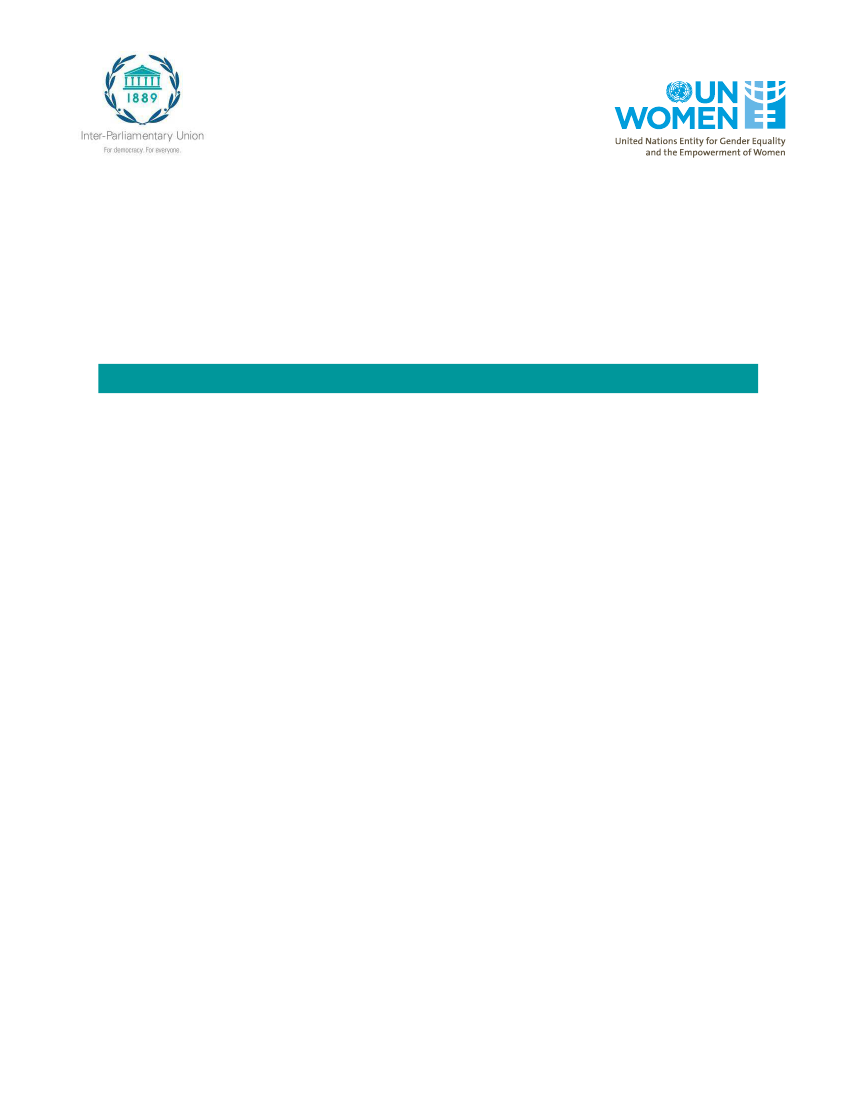
Beijing +25:
Parliaments accelerating action to achieve gender equality for all
women and girls
Parliamentary event organized by the Inter-Parliamentary Union (IPU) and UN Women
at the 64
th
session of the Commission on the Status of Women
11 March 2020, Trusteeship Council Room, UN Headquarters, New York
CONCEPT NOTE AND AGENDA
1.
INTRODUCTION
The United Nations Fourth World Conference on Women: Action for Equality, Development and Peace,
held in Beijing, China, in 1995, established a comprehensive
global policy framework for women’s
empowerment and gender equality. The Beijing Declaration and Platform for Action remain a central road
map for UN Member States’ implementation of the Convention on the Elimination of All Forms of
Discrimination against Women. The 12 critical areas of concern identified in this landmark document
remain as relevant today as they were 25 years ago: women and poverty; education and training of
women; women and health; violence against women; women and armed conflict; women and the
economy; women in power and decision-making; institutional mechanisms for the advancement of
women; human rights of women; women and the media; women and the environment; and the girl-child.
While progress has been made in all 12 areas to differing degrees, no country can claim to have achieved
full gender equality. In addition, new challenges have emerged, such as the backlash to gender equality,
violence against women in politics, and the adverse effects of climate change, violent extremism and
conservatism, and digital technologies on women and girls, either exacerbating existing gender
inequalities or posing new threats to hard-won
women’s human rights.
In 2020, as we mark a quarter of a century since the Beijing Declaration and Platform for Action, the time
has come to build on progress and scale up good initiatives, while reaffirming the commitments made and
devising effective responses to ongoing challenges globally, nationally and locally. Additionally, this
25
th
anniversary coincides with the first five-year milestone of the 2030 Agenda for Sustainable
Development, which includes a goal on gender equality and the empowerment of women and girls
(SDG 5) and stresses that gender equality is key to achieving progress across all development goals.
Likewise, 2020 marks the 20
th
anniversary of United Nations Security Council resolution 1325 on women,
peace and security, which highlights the importance of
women’s agency and empowerment to building
and sustaining peace.
These milestones provide momentum to accelerate progress towards achieving gender equality and
fulfilling the rights and empowerment of women and girls. Parliaments have a crucial role to play in
translating international standards into national legal and policy frameworks and accelerating concrete
outcomes in the lives of women and girls. Parliaments can make laws that deliver on equality between
men and women. They can also influence policy decisions and budgetary allocations by applying a gender
lens, demanding accountability from government, being gender-sensitive institutions, and partnering with
stakeholders from government, civil society, academia, the media and the private sector. Parliaments
must lead the way in scaling up the political will to fulfil the promise of achieving gender equality through
accelerated action.